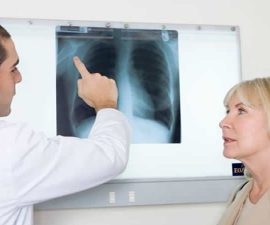… Continued …
Avoid smoking!
Smoking is not only the main risk factor of emphysema, but also can put us at high risk of developing reduced lung function as we age. And it can risk a poor pregnancy outcome, too. Even secondhand smoke is still dangerous for anyone.
What happen when you get exposed to tobacco smoke while pregnant? The babies are very fragile during pregnancy. Tobacco smoke can easily hurt them, because they have less ability than you to process harmful toxins and contents found in cigarettes. A study suggests that newborn infants of mothers exposed to secondhand smoke and of mothers who smoked will have higher levels of biochemical markers of cigarette toxins (nicotine) exposure than their mothers.
Does diet help?
What you eat can play a key role to have healthy pregnancy. It may help improve your shortness of breath, too.
For instance, anemia is also another thing to blame. Sometimes shortness of breath in pregnancy is a symptom of anemia (low red blood cells) which means you have iron deficiency. Iron is required to produce red blood cells. And red blood cells are important to carry and distribute oxygen throughout the body.
Changes in diet can help cope with anemia:
- If you have anemia, eat more foods rich in iron such as dark-green vegetables and eggs. Vitamin-C-rich foods are also recommended, because vitamin C can help your body absorb iron more optimally.
- Beans are rich in iron. But make sure to eat them only in moderation. Too much eating beans may become counterproductive because this may interfere with the ability of your body to absorb iron from other foods.
- Keep hydrated and restrict dehydration-inducing beverages such as coffee and soda!
- If necessary, ask your doctor whether taking iron supplement is your option!
Being pregnant means you eat for two. But it’s still important to put everything in your daily calories budget otherwise you can gain more excess pounds of weight ‘out of control’.
Weight gain is expected in pregnancy, but make sure that you go Not too far. Too much weight gain may contribute to worsen breathlessness during pregnancy. The normal pregnancy weight gain is dependent on your weight before pregnant, see more in here!
What else?
- Don’t push yourself to hard in any activity, including during exercise!
- If necessary, ask for help with tasks or any activity that are hard to do such as carrying heavy washing and lifting heaving bags.
- Work with your doctor! Allow your doctor know about your shortness of breath in your prenatal appointment, especially true if it gets worse and doesn’t respond with lifestyle measures.
- If you have asthma, control it as well. Uncontrolled asthma puts you and your baby at risk. Asthma medicines for pregnancy are available, but they are usually prescribed with low doses – ask your doctor for more information!
- Emphysema might occur in pregnancy, but the pregnancy is not to blame. Still, the main cause is long term exposure to tobacco smoke.
- The good news, women usually get emphysema after reproductive ages – it’s rare in women of reproductive ages. So the chance of developing this respiratory disease during pregnancy is very small.
- Shortness of breath, the main symptom of emphysema, is also a common symptom of pregnancy especially in late pregnancy. Having it doesn’t mean that you have emphysema. There should be nothing to worry as long as your shortness of breath is mild and improves with lifestyle measures.
- If you have emphysema, it’s much better to talk with your doctor first before trying to get pregnant. There may be particular instructions you need to follow to make sure that you will have healthy pregnancy.
- https://www.betterhealth.vic.gov.au/health/conditionsandtreatments/emphysema
- http://www.whattoexpect.com/pregnancy/symptoms-and-solutions/short-breath.aspx




